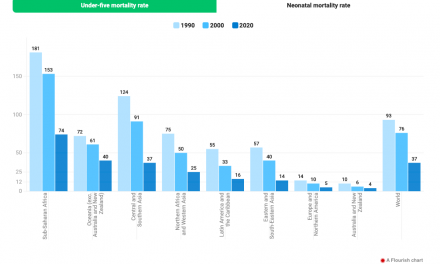A cognitive behavioural therapy (CBT) mobile app has demonstrated significant potential in preventing depression among young people at high risk, offering a promising solution to the rising mental health challenges faced by today’s youth. This groundbreaking research, conducted by the University of Exeter and funded by Horizon 2020, marks one of the largest studies of its kind, spanning across four countries.
As mental health concerns continue to grow globally, particularly among young people, the search for effective and scalable solutions has intensified. The prevalence of anxiety and depression among youth has been steadily increasing, prompting calls for innovative and accessible interventions. In this context, digital tools like mobile apps have emerged as a promising approach to address these issues.
The study, known as the ECoWeB-PREVENT and ECoWeB-PROMOTE trials, followed 3,700 participants aged 16 to 22 from the UK, Germany, Belgium, and Spain over four years. The aim was to assess the effectiveness of mobile apps in preventing depression and promoting overall mental well-being. The trials were divided into two groups: one group, consisting of 1,200 individuals at heightened risk for depression, was targeted for prevention, while the other 2,500 participants were monitored for general well-being.
Participants were assigned to use one of three apps: a self-monitoring app for daily emotional tracking, a self-help app focused on emotional competence skills, and the CBT-based app. After three months and a year of follow-up, the results revealed compelling findings. The CBT app was found to significantly prevent the onset of depression among those at higher risk, while no notable differences were observed among the lower-risk group.
Professor Ed Watkins from the University of Exeter, who led the research, emphasized the importance of targeted interventions. “For young people with elevated risk, our findings suggest the CBT app does have a preventative effect on depression and could have a public health benefit,” he said. “Participants’ quality-of-life measures were better, and their social and work functioning showed improvement. However, prevention works best when we focus on those most at risk rather than using a universal approach.”
The £3.3 million project involved collaboration from 13 partners, including commercial companies like the German voice analysis firm audEERING and Danish app developer Monsenso, as well as academic institutions such as the University of Oxford, LMU Munich, Ghent University, and Universitat Jaume I. The project’s comprehensive nature allowed for detailed insights into the scalability and impact of digital mental health tools.
Key Findings and Future Directions
The research highlights that even minimal use of the CBT app, including just a few sessions, resulted in small but meaningful benefits for those at higher risk. This suggests that the app’s scalable and cost-effective nature could offer valuable public health benefits. However, engagement and sustained use remain critical areas for improvement. As Professor Watkins noted, the next step is to identify the app’s most effective components and refine engagement strategies.
The results of this study contribute to growing evidence supporting the use of digital mental health tools, especially for those who face a higher risk of depression. With the ability to reach large numbers of young people at a relatively low cost, CBT-based mobile apps could become an essential part of public health strategies, complementing traditional in-person services and offering timely interventions before mental health crises escalate.
As global attention turns to tackling the mental health crisis among young people, the potential of digital solutions like this CBT app cannot be underestimated.












